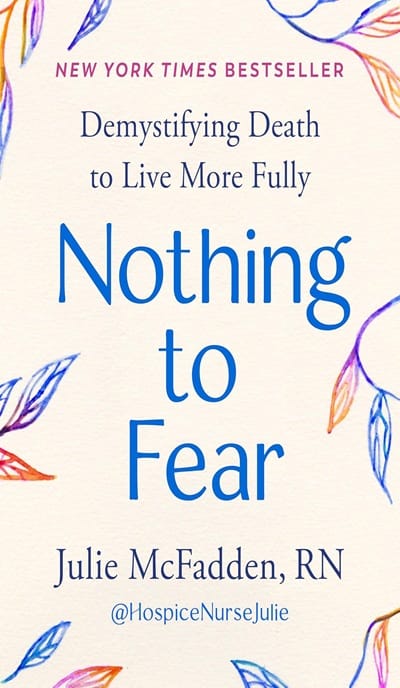As we age, thoughts about mortality often surface, and learning how to conquer fear of death becomes a meaningful pursuit for many seniors.
It’s natural to reflect on life’s end, but fear doesn’t have to dominate. This article offers practical, compassionate strategies to help seniors face these feelings with peace and confidence.
By addressing both the fear of aging and the fear of death, we’ll explore ways to find calm and embrace life fully.
Understanding Why Fear of Death Arises
The fear of death often stems from the unknown. For seniors, this fear may intensify due to health changes, loss of loved ones, or thoughts about life’s purpose.
The fear of aging can also play a role, as physical limitations or societal views on growing older may spark anxiety. Recognizing these triggers is the first step to addressing them.
Death is a universal experience, yet it feels deeply personal. Questions like “What happens after?” or “Have I lived a good life?” can weigh heavily.
For some, religious or spiritual beliefs shape these thoughts, while others may feel uncertain. Understanding that these feelings are normal can help ease the burden. You’re not alone in this.
Reframing Your Perspective on Death
One powerful way to approach conquering fear of death is to reframe how you view it. Instead of seeing death as an end, consider it a natural part of life’s cycle. Many seniors find comfort in focusing on the legacy they’ve built, through family, friendships, or contributions to their community.

Try reflecting on what matters most to you. Write down your life’s proudest moments, like raising children, helping others, or pursuing passions. This exercise can shift your focus from fear to gratitude. By celebrating your achievements, death becomes less like a loss and more like a transition after a life well-lived.
Another approach is to explore cultural or spiritual perspectives on death. Many traditions view it as a passage to something new, whether it’s an afterlife, reincarnation, or simply returning to nature. Even if you’re not religious, exploring these ideas can offer comfort and reduce fear.
How to Conquer Fear of Death: Practical Steps
Taking action is key to how to conquer fear of death. Here are practical steps seniors can try:
1. Talk About It
Share your thoughts with a trusted friend, family member, or counselor. Speaking openly about death can make it feel less intimidating. Support groups for seniors often provide a safe space to discuss these feelings.
2. Practice Mindfulness
Mindfulness techniques, like deep breathing or meditation, help calm anxious thoughts.
Try a simple exercise: sit quietly, breathe slowly, and focus on the present moment. Apps like Calm or Headspace offer guided sessions tailored for seniors.
3. Stay Connected
Loneliness can amplify fears. Engage with your community through hobbies, volunteering, or senior centers. Building connections reminds you that your life has meaning and purpose.
4. Plan Ahead
Practical steps, like creating a will or discussing end-of-life wishes, can reduce anxiety. Knowing your affairs are in order brings peace of mind. It’s also a way to ensure your values and wishes are honored.
5. Explore Spirituality
If faith is part of your life, lean into it. Attend services, read spiritual texts, or talk with a religious leader. Even non-religious seniors can find comfort in exploring life’s bigger questions through philosophy or nature.
These steps don’t erase fear overnight, but they build resilience over time. Small, consistent efforts can make a big difference.
Addressing the Fear of Aging
The fear of aging often goes hand-in-hand with the fear of death. Aging can bring physical changes, like reduced mobility or health challenges, which may heighten anxiety about mortality. However, aging also brings wisdom, perspective, and opportunities for growth.
To ease this fear, focus on what you can control. Stay active with gentle exercises like walking or yoga, which boost both physical and mental health.
Eating a balanced diet and staying hydrated also support well-being. Celebrate small victories, like trying a new hobby or learning a new skill, to remind yourself that aging doesn’t mean slowing down.
Another tip is to challenge negative stereotypes about aging. Society often portrays older adults as frail or irrelevant, but this isn’t true.
Many seniors lead vibrant, active lives. Surround yourself with positive role models—people who embrace aging with grace and enthusiasm.
Finding Meaning in the Present
A key to conquering fear of death is living fully in the present. Seniors often find that focusing on today, rather than worrying about tomorrow, brings joy and purpose.
Ask yourself: What makes me happy right now? It could be spending time with grandchildren, gardening, or rediscovering an old passion.

Try creating a “life list” (instead of a bucket list) of things you want to do now. These don’t need to be grand adventures; simple goals like calling an old friend or planting flowers count. Each small action reinforces that your life is still rich with possibility.
Gratitude also plays a big role. Keep a gratitude journal and write down three things each day that bring you joy. This habit shifts your focus from fear to appreciation, making it easier to face uncertainties.
Seeking Professional Support
Sometimes, the fear of death feels overwhelming, and that’s okay. If anxiety persists, consider professional help.
Therapists or counselors trained in geriatric care can offer tailored strategies. Cognitive-behavioral therapy (CBT) is especially effective for addressing fears and negative thought patterns.

Hospice or palliative care professionals can also provide guidance, even if you’re not facing a serious illness. They specialize in helping people find peace with life’s transitions. Don’t hesitate to reach out; asking for help is a sign of strength.
Building a Legacy of Love and Wisdom
One beautiful way to conquer fear of death is to focus on the legacy you’re leaving behind. Share your stories, values, and wisdom with younger generations.
Write letters to your grandchildren, record family recipes, or create a scrapbook of memories. These acts remind you that your influence lives on.
Volunteering is another way to leave a lasting impact. Whether it’s mentoring youth or helping at a local charity, giving back creates a sense of purpose. It’s a reminder that your life continues to matter, no matter your age.
Embracing Peace in Your Journey
Learning how to conquer fear of death is a journey, not a destination. It’s about finding peace with life’s uncertainties and embracing each day with courage.
By reframing your perspective, taking practical steps, and focusing on the present, you can reduce fear and live more fully. Aging brings challenges, but it also offers opportunities to grow, connect, and leave a meaningful legacy.
For seniors, conquering fear of death means rediscovering joy in the moment and trusting that your life has been (and still is) valuable. Take it one step at a time, and know that you’re not alone. With patience and practice, you can face the future with calm and confidence.













